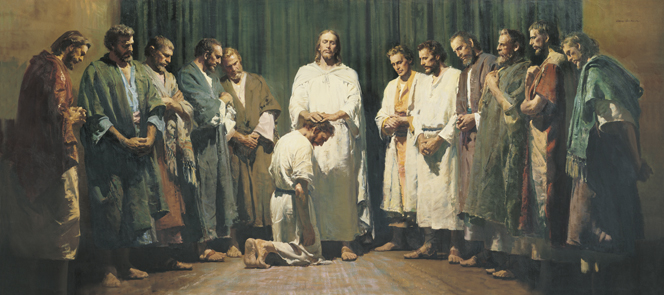Both Elder Bednar and Socrates address the topic of
communication and do it with an audience.
But how can we know what to believe when communication is a mean and a
topic? Doesn’t that all just seem a
little confusing? Through the use of
ethos and logos, it is easy to trust both Elder Bednar and Socrates.
 Elder Bednar establishes his ethos by first talking about
the importance of prophets and then proving his point by going on to quote prophets,
play audio recordings from prophets, and show videos of prophets speaking on
the use of technology. You can’t argue
with that! You also can’t argue with
Socrates as he refutes the ethos of Gorgias.
I think even Gorgias started to doubt himself with all those questions.
Elder Bednar establishes his ethos by first talking about
the importance of prophets and then proving his point by going on to quote prophets,
play audio recordings from prophets, and show videos of prophets speaking on
the use of technology. You can’t argue
with that! You also can’t argue with
Socrates as he refutes the ethos of Gorgias.
I think even Gorgias started to doubt himself with all those questions.
Socrates also uses lots of questions to reason and therefore
uses logos which makes him even more believable. Gorgias even agrees with Socrates multiple
times and ends up contradicting himself.
Elder Bednar uses logos throughout the body of his speech by stating
lots of statistics. The “Because of Him” video was viewed “more than five
million times during Easter week in 191 countries and territories of the world”. These statistics prove his point.
So now that we believe both Socrates and Elder Bednar what
should we do? Start communicating and
questioning and flooding the world with knowledge, truth and light!

I think you had a good thing going there talking about the mean and topic of speech. It is interesting to think about what we're doing when speaking. Many times we just think that we're speaking, but in reality we're doing something with our speaking. We are influencing others to do something by using our words rather than compelling with force or actions. So what is the action of our speaking actually doing?
ReplyDeleteInteresting that Elder Bednar uses quotes and Socrates uses questions to prove their points. With a one-on-one encounter like Socrates had, it's important to guide the opposition through your argument, and questions were a perfect way to do it. Elder Bednar was addressing a wider audience who generally had his same opinions; thus, he could use quotes from prophets and know that everyone would agree.
ReplyDelete